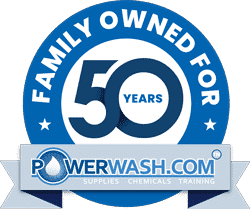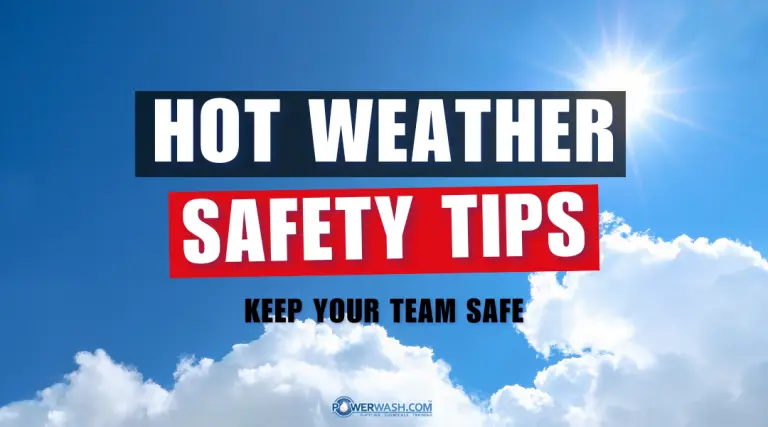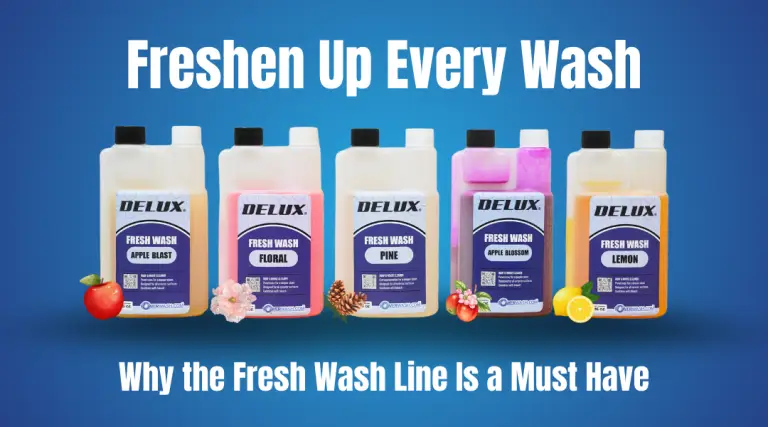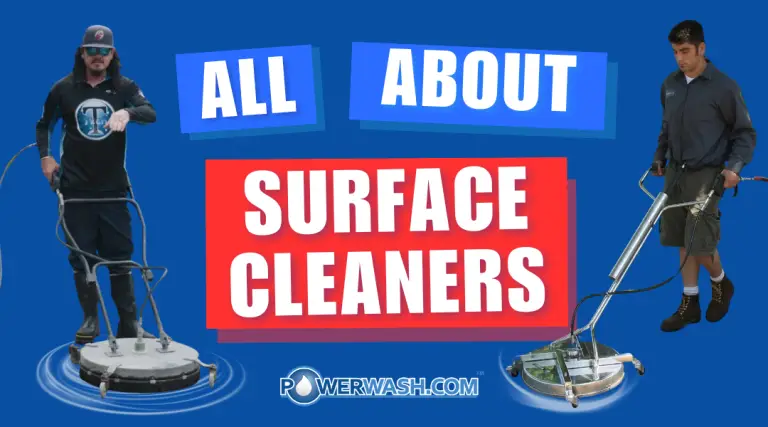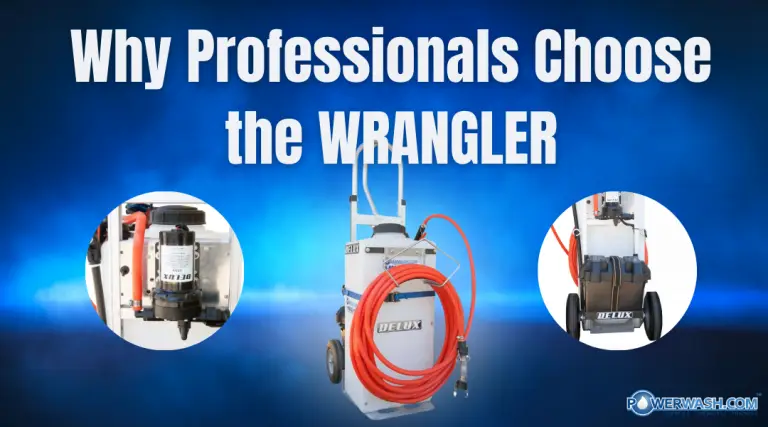- Home
- /
- Power Wash Spray Tips
- /
- What is your favorite trigger gun?
Subscribe To Our Newsletter
Stay in the know on the latest products, deals, events, tips & tricks.
Social Media
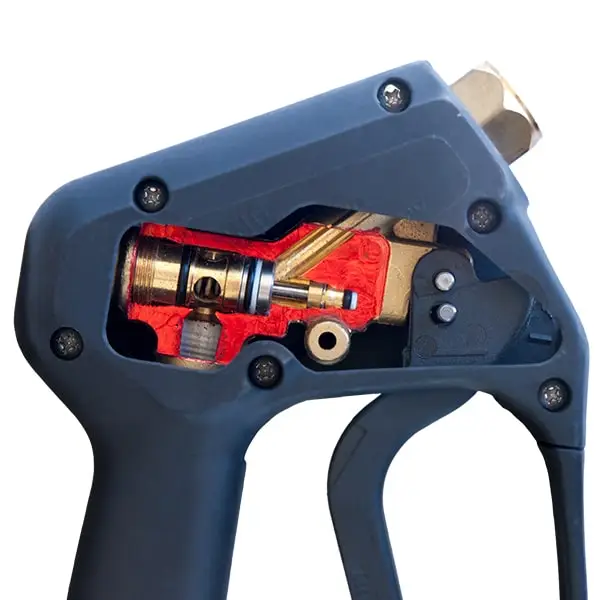
What is your favorite trigger gun?
Your pressure washer gun may seem like a basic piece of equipment, but there is more to spray guns than you may think. Flow rate, temperature rating and pressure rating are just the start. You may also want to consider ergonomics, chemical resistance, and gun type.
The most common type of pressure washer gun in the rear entry gun. Water enters the gun from a 3/8 inch port just below the butt of the gun. Then it flows through a tube to a valve at the top of the gun. Inside that valve, a spring holds a ball firmly over the exit tube. O-rings help the ball form a tight seal. When you squeeze the trigger, a pin dislodges the ball and allows water to flow through the gun to the exit.
The components of a pressure washing gun will wear with use. They can be easily replaced, but most people prefer to just buy a new gun. Running cool water through your pressure washer at the end of the day is a great way to clean out your system and increase its longevity.
Pressure, flow and temperature rating should all be considered when you are shopping for a pressure washer gun. A good rule of thumb is to give yourself about 10% headroom. That is to say if your machine is capable of generating 5,000 PSI, you will want to get a pressure washer gun that is rated for 5,500 PSI. The same rule applies for flow and temperature. This will help your pressure washer gun last a bit longer.
A pressure washer gun can be compared to a good pair of boots. Some will fit better than others. The angle of the gun will vary depending on which model you choose. The angle of the trigger in its resting position will also vary. The distance between the trigger and the trigger guard must also be considered. They are definitely not a one size fits all. The shape of your hand, the angle of your wrist, and even the strength of your grip should be considered. Some pressure washer guns such as the Legacy Best or the YG-5000 have a relaxed pull trigger feature that makes it easier to hold the trigger open for extended periods. Personal comfort is an important factor when choosing a pressure washer gun. Fatigue will lead to inefficiency.
If you are soft washing with sodium hypochlorite or any other type of harsh alkaline you may want to consider using the JA-8000 PVC trigger gun. It has a lock to hold it open when it is in use and a nice angle for high and low places. The JA-8000 is not technically a pressure washer gun with only 700 PSI tolerance but it is a nice step up from a plain old PVC ball valve.
For high pressure chemical resistance, you may want to consider the Comet MV2002 pressure washer gun with stainless steel internal components. This type of gun is a great choice for situations when you downstream strong acids or bases. Stainless steel is a much stronger metal than brass. If you use corrosive chemicals frequently, it is a great upgrade.
Weep guns allow a small amount of water to flow even after the trigger is released. The small drip helps prevent freezing when pressure hose runs across frozen ground. The drawback is that they can cause the unloader valve and burner to cycle on and off. This will reduce he lifespan of these parts. Weep guns are not recommended for everyday use.
A dump gun is similar to a weep gun, but it has a second tube that allows the water to continue flowing even when the trigger is released. Unlike a weep gun, the dump gun redirects 100% of the water to a low pressure nozzle. This eliminates the problem of your pressure washer pump overheating in bypass mode. It also means that the burner can stay on when the trigger is released. The water stays hot, and reduces the risk of freezing. The disadvantage of dump guns is that you must shut off your machine to stop the flow of water.
Linear guns, or straight guns do not have an angle. This makes them more comfortable to hold when using a surface cleaner or in applications where you are washing above your head.
There are two more types of guns that are not very common in professional pressure washing. The front entry trigger gun has an inlet in front of the trigger. The advantage of this type of gun is that they don’t allow hot water to pass through the pistol grip. Another type of gun is the open gun. This type of gun does not have a trigger. The advantage of the open gun is that they do not require an unloader. The disadvantage is that you must completely shut off your pressure washer to stop the flow of water. The other disadvantage of both guns is that they are not as durable as most traditional pistol grip trigger guns.
A pressure washer gun is a special type of valve that stops, or redirects the flow of water from your pressure washer. Take time to find one that fits your hand and your budget. Consider chemical resistant options if you work with strong acids or bases. Pressure washers in cold climates may want to consider dump guns or weep guns. Always make sure that your gun is rated for the machine that you will be using, and never try to disable the automatic shutoff safety feature.
Share This Post
More To Explore
Beat the Heat: Summer Safety Tips for Power Washing Professionals
Protect Your Crew. Protect Your Equipment. Protect Your Business. When the summer sun blazes, pressure washing jobs don’t stop—but the ...
Soft Wash Additive That Smells Amazing? Meet Fresh Wash
Freshen Up Every Wash Soft washing is all about precision, power, and presentation — and nothing completes a job like ...
Mastering the Art of Pressure Washing: Key Insights on Surface Cleaners
For professionals in the pressure washing industry, a surface cleaner is an indispensable tool, particularly for those who specialize in ...
The Wrangler™ Chemical Sprayer: The Ultimate Tool for Professional Cleaning Applications
For commercial cleaners and pressure washing professionals, efficient chemical application is key to achieving the best results. The Wrangler™ Chemical ...
